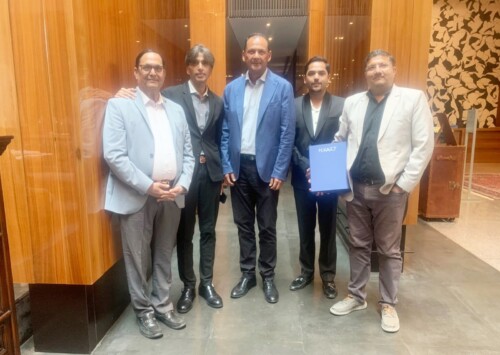Jyoti Malhotra’s detention tests India’s human rights commitments
Espionage charges spotlight tensions between security and civil liberties
The arrest of YouTube influencer Jyoti Malhotra under espionage charges raises critical questions about the balance between national security and human rights in India, highlighting concerns over due process, media bias and the use of colonial-era laws against dissent.
The arrest of Jyoti Malhotra, a 33-year-old YouTuber from Haryana in India, has ignited a national debate on the limits of state power, the boundaries of free expression, and the state of human rights in India. Despite police officials confirming there is no evidence linking Malhotra to any terrorist organisation or activity, she remains in custody under the draconian, colonial-era Official Secrets Act, 1923, and Section 152 of the Bharatiya Nyaya Sanhita. Her continued detention, alongside the arrest of 11 others under similar suspicions, raises pressing questions about due process and the broader implications for civil liberties in the country
Malhotra, known for her travel vlogs under the channel “Travel with JO,” was arrested on May 16 after Hisar Police in Haryana registered a First Information Report (FIR) alleging that she had been in contact with Ehsan-ur-Rahim, alias Danish, a staffer at the Pakistani High Commission in New Delhi. Danish, who was later expelled by India on accusations of espionage, reportedly sought to recruit Indian nationals and influencers, including Malhotra, as intelligence assets. Police claims that Malhotra had maintained contact with Danish from November 2023 to March 2025, but so far, no evidence has surfaced indicating she accessed or transmitted any classified military or strategic information.

Jyoti Malhotra
Police say they have also have scrutinised Malhotra’s visits to religious sites and her use of drones.
Her digital devices and bank accounts are under forensic examination, but the absence of concrete evidence has not prevented her from being remanded repeatedly to police custody.
On May 19, seven days after her arrest, the police did say that it had not found any connection between Malhotra and any terrorist organisation and that it had not found any evidence that she was involved in planning any terror activities in India. Despite that, due to the use of OSA, Malhotra continues to be in custody, allegedly because she continued to remain in touch with Danish even after she came to know that he was involved in espionage in India.
Malhotra’s case is not isolated. Over the past weeks, at least 12 individuals from Punjab, Haryana and Uttar Pradesh have been arrested on espionage charges, with police claiming the existence of a Pakistan-linked spy network in North India.
Legal experts and human rights advocates argue that these arrests reflect a disturbing trend of “witch hunts” under the guise of national security.

Dilwar Hussain
“Procedural safeguards under criminal law ensure fairness and prevent abuse and an accused is presumed innocent until proven guilty, has the right against self-incrimination, and may seek bail even for serious charges. Also, arrests require recorded reasons and judicial oversight, with courts reviewing detention and evidence, and special laws like the Official Secrets Act require government sanction for prosecution and judicial balancing of public interest. Under the Official Secrets Act, espionage involves obtaining, collecting, recording, publishing, or communicating any secret official code, password, sketch, plan, model, article, or note which may be prejudicial to the safety or interests of the State. This must relate to areas such as defence, military establishments, or strategic infrastructure,” Dilwar Hussain, Advocate, Supreme Court of India, tells Media India Group.
Hussain says that in Malhotra’s case, the prosecution’s evidence appears weak. “Prima facie the case of the prosecution is extremely weak. As I previously mentioned, she has to face the hardships of a trial but eventually I am confident that she will be acquitted as the law is very clear that to prove such charges the prosecution must establish that the accused have access to classified defence or strategic material. The judiciary, in principle, requires clear, direct, and intentional acts that go beyond mere speculation, digital commentary, or association,” Hussain adds.
He adds that the human rights concerns in the recent spate of arrests are manifold. The most immediate is the delay in granting bail.
“Lower judiciary lacks spine even while handling the less stringent sections, bail in a case like espionage will surely not be granted by the lower court. Higher courts also need to show spine to safeguard the rights of the accused, but nowadays we have seen even the judges being carried away by seeing the sentiments of the public at large, but as judiciary and a democracy we must be ruled by law first,” Hussain says.
Prolonged detention without charge and repeated extensions of investigation violate the principle of a speedy trial, a cornerstone of both Article 21 of the Indian Constitution and international human rights standards.
Media coverage compounds the problem. Sensationalist reporting often portrays the accused as guilty before trial, prejudicing judicial proceedings and undermining the presumption of innocence.
“This prejudices judicial proceedings, influences public opinion, and undermines the principle of innocence until proven guilty,” says Hussain.
The Official Secrets Act, 1923, under which Malhotra is charged, is itself a subject of controversy. Its broad and vague language, criminalising acts “prejudicial to the safety or interests of the State”, has been criticised for lacking safeguards for journalists and whistleblowers.
Incidentally, last year while the Indian Penal Code, which had been in existence since the pre-independence era, was replaced by a ‘more modern, liberal and updated’ Bharatiya Nyaya Sanhita, the OSA, which is one of the most draconian laws used by the British in their attempts to squash the independence struggle has been left untouched.
Human rights lawyers argue that it is frequently misused to target dissent and investigative journalism, allowing authorities to suppress information and silence critics under the guise of national security.
Comparisons with previous cases, such as that of Madhuri Gupta, underscore the need for clear thresholds of evidence before arrest. Gupta’s arrest followed months of surveillance and clear evidence of classified communication with a hostile entity. In contrast, Malhotra’s case appears to hinge on association and digital communication, not on any proven transfer of classified material.










